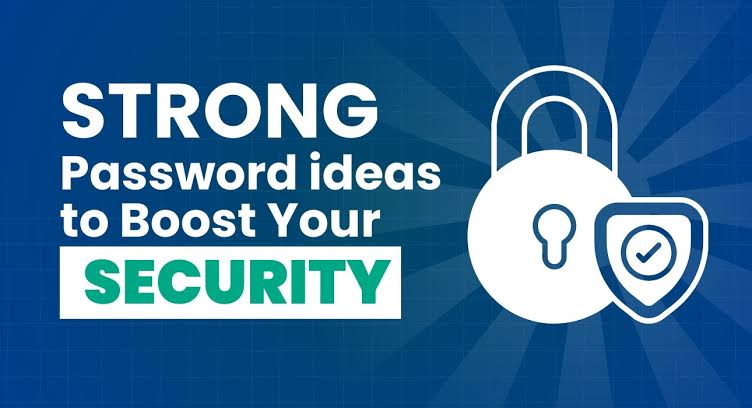In today’s connected world, the importance of online security cannot be overstated. From banking to shopping and even social media interactions, much of our personal and financial information is stored and transmitted online. One of the simplest yet most effective ways to protect this data is by using strong, unique passwords. Weak or reused passwords make it far easier for hackers to gain access to your accounts, leading to potential identity theft, financial loss, and privacy breaches.
Strong passwords act as the first line of defense against cyber threats. They make it significantly harder for malicious actors to guess or crack your login credentials through brute-force attacks or phishing scams. In a time when data breaches are becoming increasingly common, mastering the creation and management of secure passwords is no longer optional—it’s a necessity.
Why Strong Passwords Are Essential
A strong password ensures that even if someone tries to gain access to your account using automated guessing tools, it will take them much longer or even become impossible without advanced hacking methods. Cybercriminals often rely on common password habits, such as using predictable words, simple patterns, or personal details like birthdays.
Weak passwords such as “123456” or “password” can be cracked in seconds. In contrast, a complex password with a mix of letters, numbers, and symbols can take years for modern hacking tools to decipher. This delay often prevents attackers from successfully breaching your accounts before you can take action, such as changing credentials or enabling additional security measures.
Characteristics of a Strong Password
A strong password is not just about length—it is about complexity and unpredictability. Security experts recommend the following features:
- At least 12 characters in length, preferably more
- A combination of uppercase and lowercase letters
- Inclusion of numbers and special characters
- Avoiding dictionary words or common phrases
- Steering clear of personal information like names or dates
For example, instead of choosing something predictable like “john1985,” a stronger option might be “J9!lX5tP@3rB”. While this may be harder to remember, it is far more secure against modern hacking methods.
The Role of Password Managers
One of the biggest challenges people face is remembering multiple strong passwords for different accounts. This is where password managers come in. These tools securely store and encrypt your passwords, allowing you to use unique credentials for every account without the burden of memorization.
Password managers can also generate highly complex passwords that are difficult to guess. Many integrate directly with browsers and mobile devices, making logins seamless without compromising security. This approach greatly reduces the temptation to reuse passwords across multiple sites—a common yet risky habit.
Avoiding Common Password Mistakes
Many people unknowingly make their passwords easier to crack by using predictable patterns. Some common mistakes include:
- Using sequential numbers like “12345678”
- Choosing words found in the dictionary
- Replacing letters with predictable substitutions such as “P@ssw0rd”
- Reusing the same password for multiple accounts
- Sticking to short passwords under 8 characters
Avoiding these pitfalls is just as important as creating a strong password in the first place. Cybercriminals use advanced algorithms that can easily recognize these common variations, making your account vulnerable even if you think the password looks complex.
The Importance of Two-Factor Authentication
While strong passwords are essential, they should be paired with two-factor authentication (2FA) for maximum security. 2FA adds an extra layer of protection by requiring a second form of verification, such as a code sent to your phone, an authentication app, or a biometric scan.
Even if an attacker somehow gains your password, they will still be blocked from logging in without the secondary code. This dramatically reduces the chances of unauthorized access and is especially important for sensitive accounts such as email, banking, and cloud storage.
Updating and Managing Your Passwords Regularly
Cybersecurity best practices recommend changing your passwords periodically, especially for accounts that hold sensitive personal or financial information. If a company you use experiences a data breach, updating your credentials immediately is essential to prevent unauthorized access.
A good strategy is to schedule password updates every few months and ensure that no two accounts share the same credentials. A password manager can make this process less tedious by allowing you to update stored credentials in one place while automatically syncing them across devices.
Educating Yourself and Others
Strong passwords are only effective when you understand and apply proper security habits. Educating yourself about current cyber threats and sharing this knowledge with friends, family, and colleagues can help create a safer online environment. Simple practices, like recognizing phishing attempts or avoiding suspicious links, can prevent attackers from obtaining your passwords in the first place.
By combining password strength with safe browsing habits, regular updates, and additional authentication measures, you significantly reduce your chances of falling victim to cybercrime.
Conclusion
Boosting your online security with strong passwords is one of the simplest yet most powerful actions you can take in today’s digital age. A well-crafted password acts as a shield, protecting your accounts and personal data from cyber threats. By following best practices such as using long, complex combinations, avoiding predictable patterns, leveraging password managers, and enabling two-factor authentication, you can build a robust defense against hackers.
Taking these steps may require a bit of extra effort at first, but the peace of mind and protection they offer are well worth it. Your digital security starts with the strength of your passwords—make them strong, unique, and updated regularly to stay ahead of potential threats.




13 thoughts on “Boost Your Online Security with Strong Passwords”